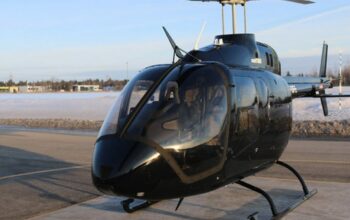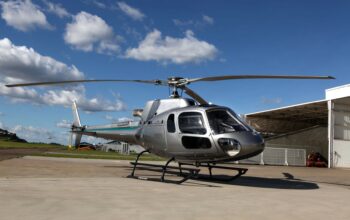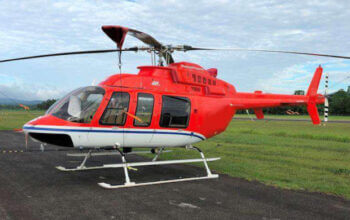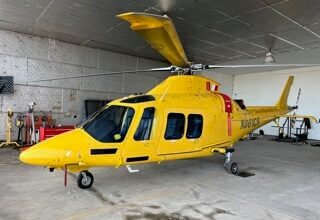Estimated reading time 6 minutes, 25 seconds.
New Zealand has a long, rich history of breaking with convention–of scuttling what’s familiar in favor of what’s exciting, better, and new.
It’s a quirky but progressive island nation founded by adventurers, populated by innovators and driven to make the world a better place, one pragmatic step at a time.
Within the aviation industry, there’s no better example of this spirit than Spidertracks, an Auckland-based global leader in tracking devices for aircraft.
“There’s this real frontiership and resourcefulness that comes through into our DNA down here,” said Dave Blackwell, Spidertracks CEO. “It’s a really powerful and core part of who we are.”
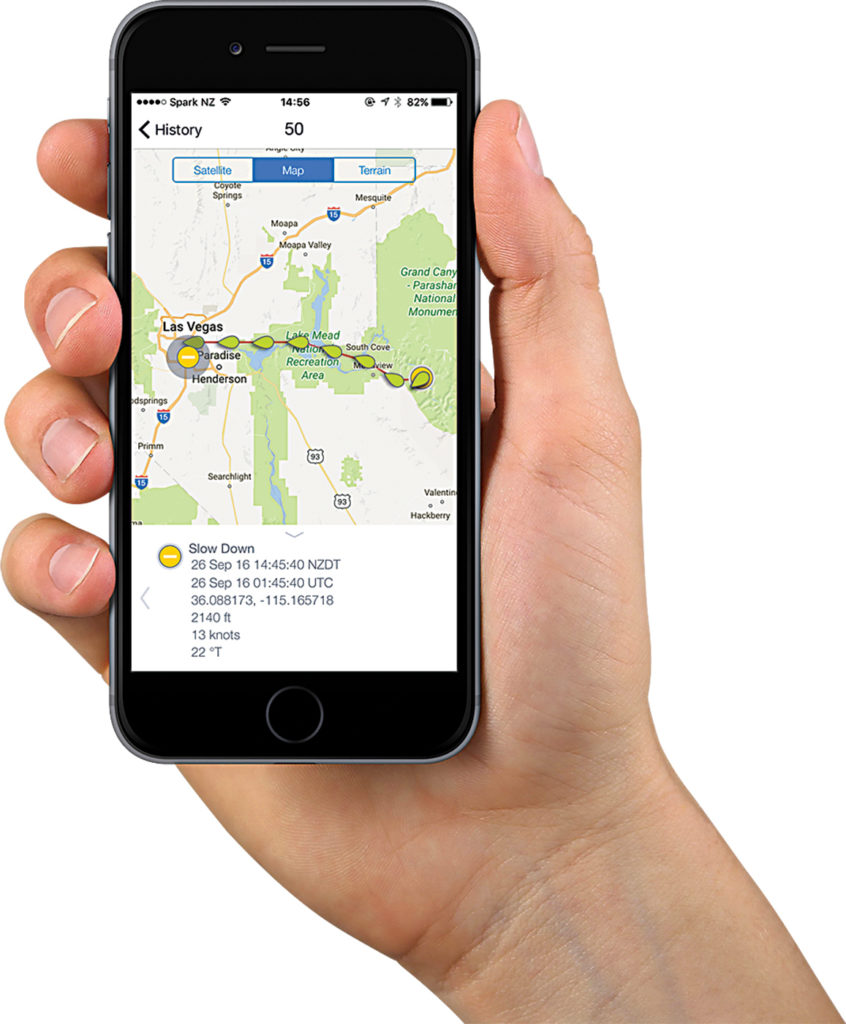 Spidertracks was created in 2007, after a helicopter crash that claimed the life of a prominent New Zealander. The antenna for the aircraft’s emergency locator transmitter (ELT) broke off in the crash and couldn’t transmit his distress.
Spidertracks was created in 2007, after a helicopter crash that claimed the life of a prominent New Zealander. The antenna for the aircraft’s emergency locator transmitter (ELT) broke off in the crash and couldn’t transmit his distress.
After 15 days of searching 16,000 square kilometers of countryside, the aircraft was found less than 100 kilometers from the origin of the flight, Blackwell said.
“It was one of the most inefficient search-and-rescue efforts that New Zealand’s ever seen,” he added. “The public was outraged.”
A young engineer who was working for a helicopter pilot at the time went looking for a better, more cost-effective way to track and locate general aviation aircraft, and he created Spidertracks’ first product.
Using a GPS receiver, an Iridium transceiver, and a few other components, the product–called a Spider–was able to send position reports of an aircraft in real-time through a network and display it back to people on the ground.
“The commercial potential became apparent very, very quickly,” said Blackwell.
“The industry adopted the solution with open arms, and the rest is more or less history.”
Today, Spidertracks continues to set the standard for real-time aircraft tracking, partnering with the Iridium satellite network to track aircraft over every inch of the globe, from takeoff to landing.
Operators can view, manage, and communicate with their entire fleet using any internet-connected device, making use of custom apps for iPads, iPhones, and Android cellphones and tablets.
In addition to being a safety and productivity driver in the business, Spidertracks delivers a peace of mind to its customers that’s invaluable, particularly in today’s environment.
Blackwell speaks of the company’s standard practice of asking customers what it is that keeps them up at night.
“More and more, we’re seeing our customers aspire to a level of safety above and beyond any regulatory requirement. This comes against the backdrop of a global shortage of pilots, which often leaves operators no choice but to hire pilots with minimum qualifications and experience into their frontline operations. That’s something that drives a ton of anxiety.”
Spidertracks’ new innovations address this anxiety, providing operators with complete insight into and analysis of their aircraft and pilots before, during, and after a flight in ways that have traditionally only been available to airlines or operators with cash to burn.
 The company is also developing an integration for automatic maintenance tracking systems, using leading software to add value by automatically capturing flight details and then integrating those details into other parts of the business.
The company is also developing an integration for automatic maintenance tracking systems, using leading software to add value by automatically capturing flight details and then integrating those details into other parts of the business.
Blackwell added that it’s about understanding the whole problem that needs to be solved.
“A huge part of any any business is trust, and we have a long history of meeting the needs of our customers in a way that allows commercial success to simply follow,” he said.
A genuine passion for aviation and a compassion for people who work in the industry has always been the impetus for innovation at Spidertracks. It’s part of what continues to move the company forward as it tries to revolutionize the way commercial and general aviation operators manage their businesses.
“We’re passionate about solving problems for our customers, and when we continue to do that better than anyone else, we get to keep them as our customers,” said Todd O’Hara, helicopter pilot and chief marketing officer for Spidertracks.
Along the way, the company is embracing diversity–its 25 employees have 14 different nationalities–and an agile approach that welcomes failure as a path to success.
“In many corporate environments, you see a great deal of risk aversion–a lot of safe choices being made,” said O’Hara. “People like to stick with what they know, and as a result you see a slowdown in innovation.
“You see a lot of very predictable outcomes in terms of what companies do, and these companies follow a trend in that they become less relevant over time.
“At Spidertracks in particular, we approach solving problems for our customers by celebrating our own failures. We believe that failure on a small scale allows us to be comfortable trying new things–to attempt to solve problems in ways that others haven’t thought of yet, and then to learn and become better rather than just seeing mediocre success.”
Another quirk of the culture at Spidertracks: every Friday at the office, beer is available–but only for colleagues who share their failures that week.
“I think that drives a big culture of shared learning and of improving the solution the customer gets at the end of the day,” said O’Hara.
“We’ve gone through the process of figuring out what does and doesn’t work, and we’ve celebrated the things we’ve done well alongside the things we’ve done wrong.
“But there’s not much point in keeping all of this to ourselves. We have a huge depth of knowledge from more than 10 years of making mistakes, listening to our customers, and being involved as leaders in our industry. If we can help prevent even one accident by sharing this experience, then it’s all worthwhile.”



